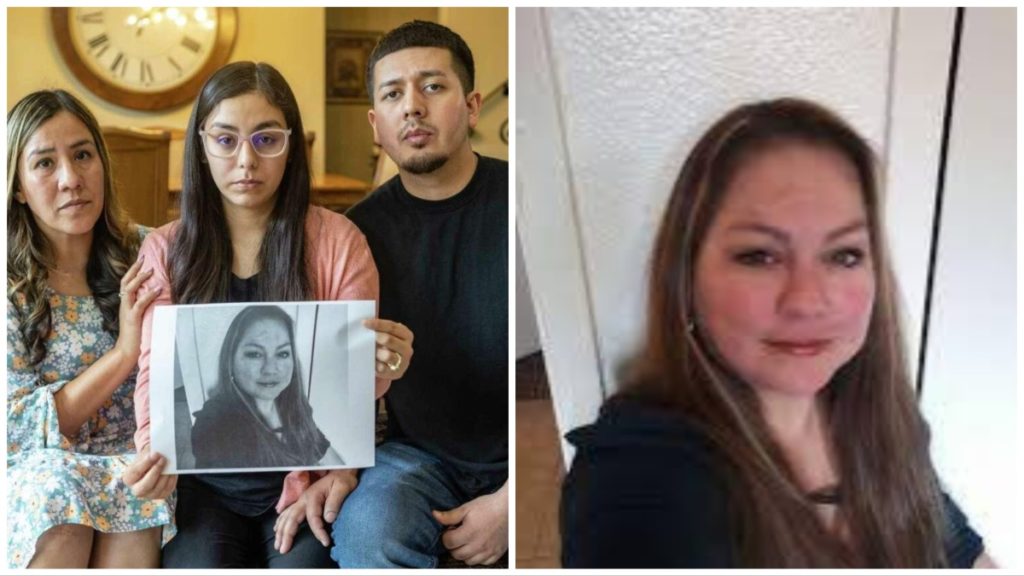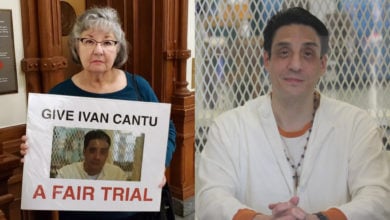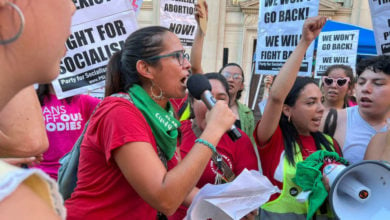On June 23, three San Antonio, Texas, cops killed 46-year-old Melissa Perez in her own home. Perez, a single mother of four who was diagnosed with schizophrenia, was experiencing a mental health crisis when police arrived at her apartment.
Police were responding to a report of a woman allegedly destroying property at the apartment complex. When cops approached Perez, she locked herself inside her apartment. They attempted to enter the apartment. Perez threw a glass candleholder at the officers.
One officer then threatened, “You’re gonna get shot.” Perez replied to with “Shoot me — you ain’t got no warrant,” throwing a hammer in the direction of the officers from the other side of her apartment walls. In retaliation, all three cops opened fire on Perez, killing her at the scene.
Three ‘bad apples’ or a rotten bunch?
The police killing was so egregious that the three officers were immediately arrested and charged with murder. It is unusual for the system to discipline itself, but not unheard of after the massive rebellion against racism in 2020 forced local justice systems to start charging killer cops with their crimes.
Officials are decrying the rogue actions of the three officers as outliers in the system and denying that there are deeper problems. According to SAPD chief William McManus, the failure lies within the individual officers whose “… actions were not consistent with SAPD’s policy and training.” (KSAT)
But the statistics around police and mental health, and the history of police terror in San Antonio and elsewhere, point to larger issues. At least 20% of people killed by police are suffering from mental illness, and people with mental illness are 16 times more likely to be killed by police. Half of all people killed by police have a disability.
If police killings of the mentally ill are a systemic issue, then so is SAPD’s record of excessive violence. In 2018, an SAPD officer shot and killed Charles Roundtree Jr., an unarmed Black teenager. In 2016, Antronie Scott was shot and killed by an SAPD officer because the officer claimed he believed Scott was holding a gun — he wasn’t. Marquise Jones was shot in the back by an SAPD officer in 2014 as he was running away from a minor traffic accident. In 2020, Damian Daniels, who was experiencing an episode of PTSD, was shot and killed outside his own home by Bexar County Sheriff’s Office (the county where San Antonio is located) by deputies sent for a mental health check.
That three different officers on scene opened fire speaks to the lie of the “bad apple” narrative. As Perez’s family’s attorney explained, “We are not talking about a rogue officer who just lost his mind or got mad. We’re talking about three officers who thought it was OK to gun this woman down in her own house.” (kens5.com)
The system has no answer to mental health crises
Perez was described by her family as a loving mother and grandmother who gave everything to her family. “If she had a dollar to her name, she would find a way to buy my brothers a snack,” Alexis Tovar, Perez’s oldest child, explained to the San Antonio Express-News. “All of us struggled a lot sometimes. But she found a way to make ends meet.” She had two tattoos: the words “Faith” and “My Angel,” dedicated to her granddaughter.

According to her family, Perez had already been seeking professional mental help for years. Her family tried their best to support her, but her deteriorating condition made it difficult for Perez to hold down a job. Unsteady employment likely made it harder for Perez to receive the health care she needed.
For millions of people in a country where health care is tied to employment and ability to pay, unemployment, disability, mental health crises, and housing instability can create spiraling personal catastrophes. Police are not and cannot be the answer to that crisis.
Lawsuit and murder charges justified against this brutal system
Less than 24 hours after the killing, the three officers who shot Perez were charged with murder.
This hasn’t stopped Perez’s family from filing a wrongful death lawsuit against the city, nor should it. There is ample evidence to demonstrate patterns of brutal police killings in San Antonio.
Working-class people should make no mistake: All three cops should be convicted of murder, but these convictions would not absolve the police of the systemic violence they inflict on our communities. A lawsuit is absolutely justified. The whole system is guilty!






